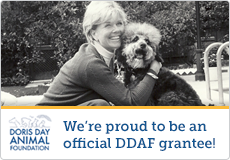Michigan Animal Adoption Network
501(c) 3 non-profit dedicated to animal care, rescue and adoption in Metro Detroit

- Home
- About Us
- Blogs from the Streets
- Education
- Housing That Allows Pets
- Caring for animals in an emergency
- Finding Quality Pet Care When You Have to Travel
- CPR (Cardiopulmonary resuscitation) for animals
- What is spaying and neutering?
- Cat Neuter video
- Cat Spay video
- Dog Castration (Neuter) video
- Dog Ovariohysterectomy (Spay) video
- Fourth of July Safety Tips by the ASPCA
- Is CBD Safe For Dogs?
- Is It Safe For My Pet To Eat That?
- Parvovirus
- The Skunk Remedy Recipe
- Ways To Save Money on Your Pets
- 22 Ways Cats Make You Happier and Healthier
- Events
- Services
- Special Mentions
- Volunteer
- Ways To Support
- The Michigan Animal Adoption Network is a Section 501(c) 3 nonprofit and your donation may qualify as a charitable deduction for federal income tax purposes. Please consult with your tax adviser or the IRS to determine whether a contribution is deductible. Federal Tax ID #: 38-3152340
Donate Now
Automatic Donations
-

Donate to the Michigan Animal Adoption Network / Animal Care Network via Venmo! @MAAN-ACN Last 4 digits: 5055
-

Donate to the Michigan Animal Adoption Network / Animal Care Network via Zelle!
Our account: miaan@att.net
-


